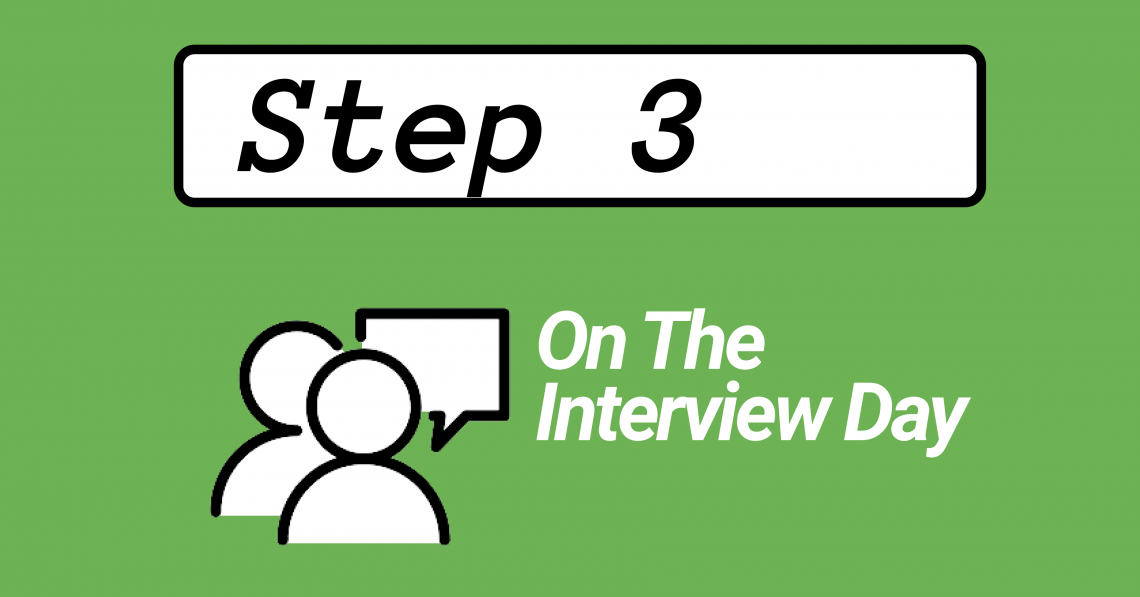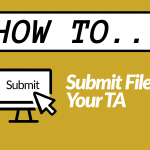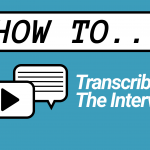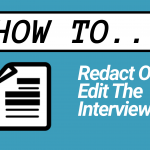Find a quiet place to conduct the interview where you won’t be interrupted by family members, pets, traffic noise, etc. Get a glass of water. Turn off cell phones, etc. in preparation for the interview. Arrive a couple minutes early to check the microphone and video and to work out any technical issues.
3.1 Complete the release form
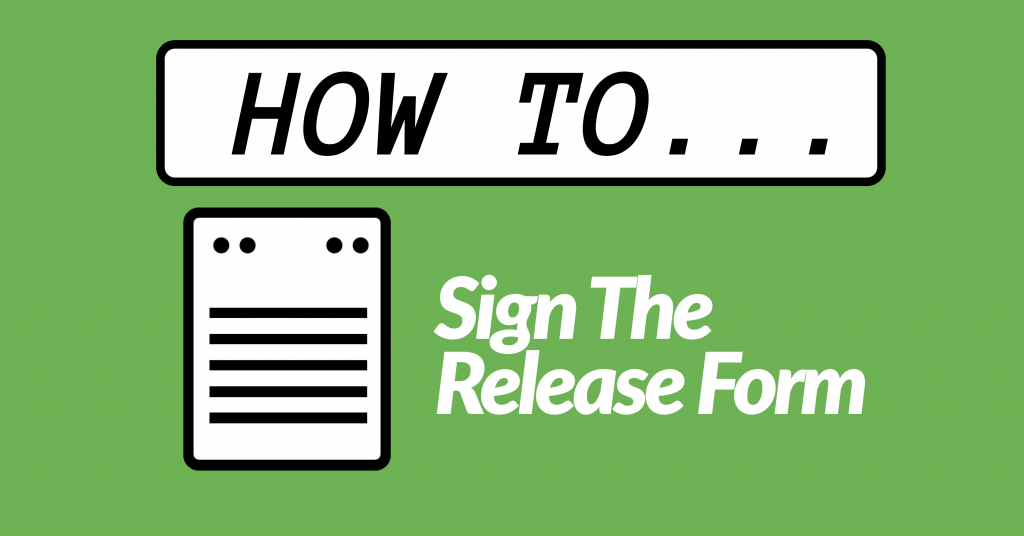
Fill out the release form before the interview.
You should have already gone over the release form before the interview, so that the interviewee is aware of their rights, the project goals, and how the interview will be made available on the project website. They can sign this form before the interview or at the latest on the interview day. If the interview is conducted over Zoom and/or the interviewee does not have access to a printer, the form can be filled out electronically.
3.2 Conduct the interview
Begin the recording with this opening statement:
My name is __________ Today is _______2022 and I am interviewing ____________ through zoom/phone call for the University of California San Diego Race and Oral History Project. Do you agree to grant the University permission to archive and publish this interview for educational purposes?
During the interview, remember to:
- Keep your remarks short.
- Ask one question at a time to guide the interview along.
- Be prepared to get off the topic, then gently bring the narrator back to the subject.
- Take notes on any follow-up questions.
- It’s okay for there to be moments of silence. Interviewees might need time to pause and think.
- Start with easier questions, such as brief biographical information, before asking more personal questions.
- Avoid off the record information—do not switch the record option on/off. Record everything and give the option to redact portions later if they desire.
- Keep the interview to about an hour. If the interviewee is becoming tired, the interviewer is responsible for asking if they wish to continue.
- End with an expression of appreciation.
Also keep in mind, cultural competency:
- Treat interviewees with respect.
- Make a commitment to honor the integrity of the narrator’s presence and perspective.
- Commitment to be sensitive to the community interviewed—do not reinforce stereotypes.
- Respect the right of interviewees to refuse to discuss certain subjects.
- Keep your word—do not make promises you cannot keep.
- Give proper credit when using oral testimony.
- Record information of lasting value to aid in understanding the past.
3.3 Write the Synopsis
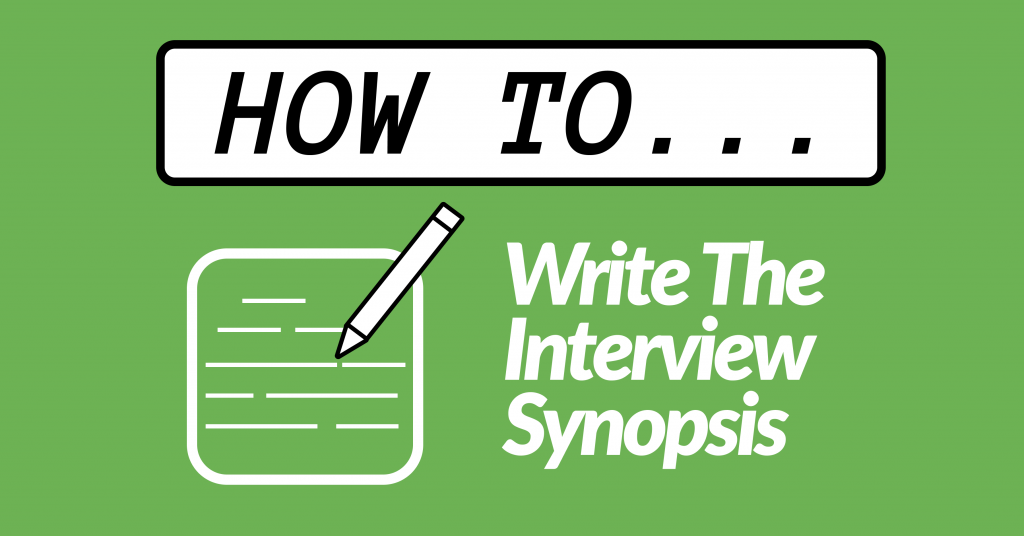
Use the interview synopsis template to capture the essential details.
After completing the interview, try your best to complete the interview summary with notes taken during the interview.
Note: It is best to complete the summary as soon as possible after completing the interview.
TIP: Use a KWL chart to take notes. (Know, Want to Know, Learned), which will be useful when writing the interview synopsis.
